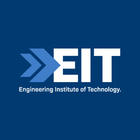Undergraduate Certificate in Engineering Foundations
Undergraduate Certificate in Engineering Foundations
Engineers are responsible for designing new systems and solving problems for a wide range of fields like mining, oil and gas, construction, power generation, manufacturing, automotive, marine and agriculture. Upon completion of this undergraduate certificate, you will have fundamental knowledge, skills, and understanding of these foundational engineering subjects. You will…
Categories
COURSE DESCRIPTION
Engineers are responsible for designing new systems and solving problems for a wide range of fields like mining, oil and gas, construction, power generation, manufacturing, automotive, marine and agriculture. Upon completion of this undergraduate certificate, you will have fundamental knowledge, skills, and understanding of these foundational engineering subjects. You will be able to apply fundamental principles of mathematics, electrical circuits, dynamics, mechanics, engineering design and drawing. You will be able to demonstrate scientific, mathematical, contextual factors and design practice knowledge that has been contextualized for engineering applications.
Program Details
This program is specifically designed to provide a fundamental skill set that is useful and applicable to almost every engineering discipline in the world, including mechanical, electrical, civil, construction, mechatronics, agricultural, marine, aeronautical, automotive, and many more. The undergraduate certificate provides you with cutting-edge skills that are valuable in the workplace as well as further studies in any engineering discipline.
With this qualification, you will have acquired the fundamental knowledge which underpins a wide variety of fields of engineering.
Program Structure
You must complete 12 credit points comprising four core units. There are no electives in this program. The full-time program duration is six months over 1 semester (or part-time equivalent). For further study, graduates may consider EIT’s Bachelor of Science in Electrical Engineering, Bachelor of Science in Mechanical Engineering, Bachelor of Science in Industrial Automation, and Bachelor of Science Civil and Structural Engineering.
Potential Job Outcomes
Students who have an undergraduate certificate in engineering foundations are able to enhance their ability and knowledge in the engineering field, enabling them to further their engineering pathway.
Graduates will be able to undertake work in a wide range of manufacturing, renewable, power, industrial, mechanical, civil, chemical, military, mineral process and mining industries in junior, technical support or entry level role.
REQUIREMENTS
Entry is available to applicants who hold one of the following:
A Year 12 Australian Senior Certificate of Education (or equivalent for International Students), completed within the past 3 years, with a minimum score of 60% in Maths.
Applicants who have completed Year 12 (or equivalent for International Students) more than 3 years ago are required to also demonstrate 2 years of relevant work experience in the field of study applied for; OR
A relevant Engineering AQF Certificate IV (or equivalent overseas qualification) with successful completion of all Maths units/modules and 2 years relevant work experience in the field of study applied for; OR
An Engineering AQF Diploma (or higher) (or equivalent overseas qualification) with successful completion of all Maths units/modules.
English Language Proficiency Requirements:
Entry to this course requires demonstration of English language proficiency at the level of an IELTS overall score of at least 6.0 (with no individual band score less than 5.5).
EDUCATIONAL INSTITUTION
The Engineering Institute of Technology (EIT) delivers industry driven programs to equip its students with the skills required in the real industrial world. Its study options are available across Perth and Melbourne; and include classroom sessions, practical lab exercises, assessments, class discussions and self-study. Additionally, students enjoy access to industry experts based around the globe through live and interactive online presentations. All EIT programs provide access to remote laboratories and cutting-edge simulation software. Hands-on laboratory practicals are an essential component of EIT’s programs to ensure students put theory into practice. These hands-on workshops cover the major discipline-specific applied skills required for competency in engineering practice.




